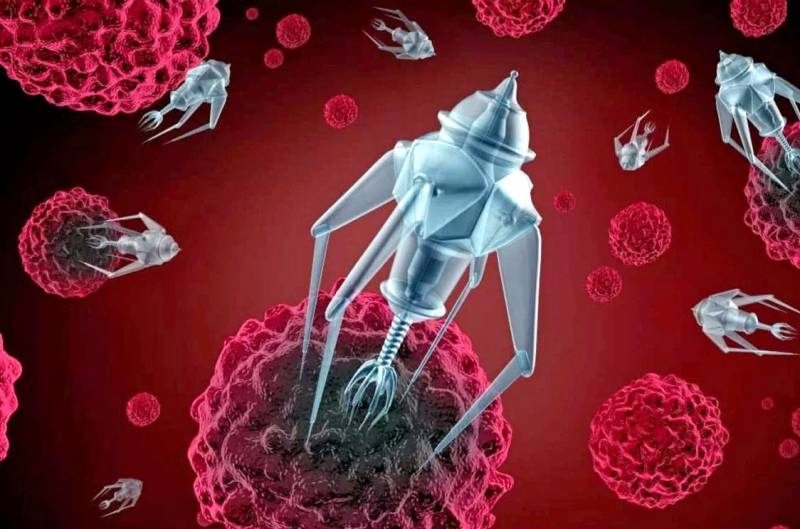The new robot microbe is designed to forever change medicine
The fact that robotics has become an integral part of most processes is today perceived as a fait accompli. But mechanical assistants are not only called upon to: build, carry, scout, clean and entertain. Such devices play a huge role in medicine.
We are talking about nanotechnology, which can deliver healing substances to any part of the body without complex operations. The day before, a group of scientists from Zurich developed the so-called robot-microbe, which can not only move inside a living organism, but also independently adapt to any type of fluid. For example, such a micro-apparatus can “float” inside blood vessels without any problems.
The aforementioned adaptation effect was achieved through the use of the Kirigami principle in the design of the body and nanocomposite filled with material with a tightly bound polymer network. Now, faced with an obstacle or a change in the viscosity of the liquid, the robot microbe can instantly change its shape to one that is better suited for this environment.
But the main feature of the device is that it lacks “bulky" sensors and a battery. The device responds to changes in electric fields due to magnetic nanoparticles. This principle allowed scientists to minimize the size of the robot, in connection with which the latter was called "microbe".
Despite the fact that the invention is at the testing stage and requires further refinement, the robot microbe has a chance to become a real medical breakthrough in the future. Indeed, with the help of such devices it will be possible to fight cancer cells, blood clots and painlessly deliver the drug to any part of the body.
We are talking about nanotechnology, which can deliver healing substances to any part of the body without complex operations. The day before, a group of scientists from Zurich developed the so-called robot-microbe, which can not only move inside a living organism, but also independently adapt to any type of fluid. For example, such a micro-apparatus can “float” inside blood vessels without any problems.
The aforementioned adaptation effect was achieved through the use of the Kirigami principle in the design of the body and nanocomposite filled with material with a tightly bound polymer network. Now, faced with an obstacle or a change in the viscosity of the liquid, the robot microbe can instantly change its shape to one that is better suited for this environment.
But the main feature of the device is that it lacks “bulky" sensors and a battery. The device responds to changes in electric fields due to magnetic nanoparticles. This principle allowed scientists to minimize the size of the robot, in connection with which the latter was called "microbe".
Despite the fact that the invention is at the testing stage and requires further refinement, the robot microbe has a chance to become a real medical breakthrough in the future. Indeed, with the help of such devices it will be possible to fight cancer cells, blood clots and painlessly deliver the drug to any part of the body.

Information